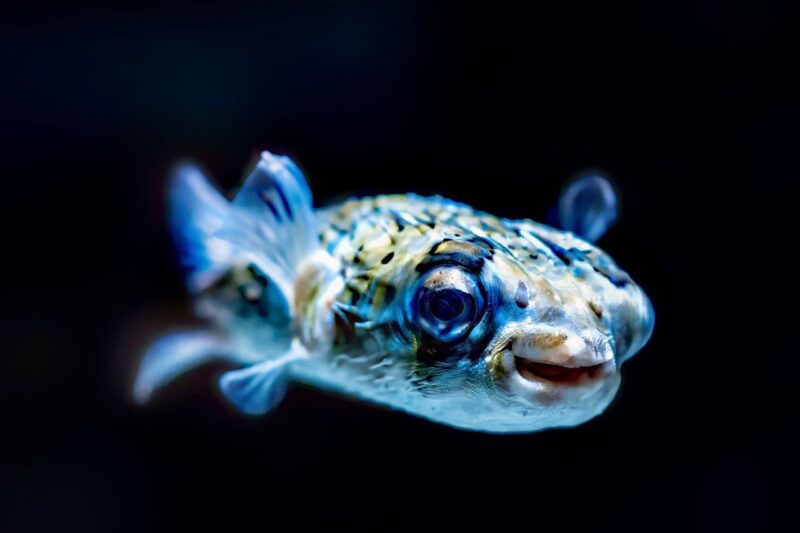Unusual Pet Choices: Why People Are Turning to Exotic Animals
November 19, 2024

In recent years, a significant shift has been observed in the pet ownership landscape. While cats and dogs have always dominated the affection of animal lovers, a growing number of individuals are opting for exotic pets. From snakes and iguanas to sugar gliders and capybaras, unusual pet choices are becoming increasingly common. This article delves into the reasons behind this trend, the challenges and responsibilities of owning exotic animals, and what potential owners should consider before bringing one into their home.
1. The Allure of the Exotic: Why Choose Unusual Pets?
The fascination with exotic pets can be attributed to several factors. Firstly, many potential pet owners are searching for companionship in a world filled with routine and predictability. Unusual animals offer a unique sense of adventure and novelty that traditional pets often lack. The exotic pet market is thriving, and here’s why:
- 1.1 Rarity and Uniqueness: Exotic pets stand out. Many owners are drawn to the idea of having a rare animal that isn’t commonly seen at the dog park or in a neighbor’s yard. The desire for uniqueness is a compelling factor, as owning an unusual animal showcases individuality and personal expression.
- 1.2 The Connection to Nature: For many, exotic pets provide a deeper connection to the natural world. Owning a snake or a parrot offers a window into different ecosystems and species behavior, fostering appreciation for wildlife and the environment.
- 1.3 Social Media Influence: The power of social media cannot be overlooked. Cute and quirky videos of exotic pets often go viral, inspiring others to consider these animals as potential companions. The instant gratification of seeing an unusual animal’s personality often fuels the desire to own one — often marketed as ‘Instagrammable’ pets.
Exotic pets provide a break from the mundane, making them appealing to an adventurous spirit in pet ownership.
2. Understanding the Responsibilities of Exotic Pet Ownership
While the allure of exotic pets can be tempting, it is crucial to consider the responsibilities and challenges that come with ownership. Exotic animals require specialized care, and potential owners must be aware of these factors:
- 2.1 Specialized Care Needs: Unlike traditional pets, exotic animals often have unique dietary, habitat, and social needs. For example, reptiles require specific temperatures and humidity levels, while parrots need mental stimulation and social interaction.
- 2.2 Legal Considerations: Many areas have restrictive laws regarding the ownership of exotic pets. Before purchasing one, it is essential to research local regulations and make sure the desired animal is legal to own in your area.
- 2.3 Long-term Commitment: Exotic animals often live longer than traditional pets. For instance, some tortoises can live for over 50 years, which means owners must be prepared for a long-term commitment to their animal’s care and well-being.
- 2.4 Financial Stability: The cost of owning an exotic pet can be substantial. From specialized food and habitat setups to veterinary care, the financial commitment is often higher than that of conventional pets. Potential owners need to assess their financial stability to ensure they can meet these requirements.
Exotic pets require informed and responsible ownership that considers the needs of the animal as a priority.
3. The Most Popular Exotic Pets and Their Unique Traits
Several species have gained popularity among exotic pet owners. Here, we discuss a few noteworthy choices and what makes them desirable:
- 3.1 Hedgehogs: These small creatures are unique and relatively easy to care for. Hedgehogs are known for their prickly quills and adorable faces. They are nocturnal and require quiet, calm environments, making them suitable for apartment living.
- 3.2 Sugar Gliders: A small marsupial native to Australia, sugar gliders have become popular for their playful nature and ability to bond closely with their owners. Their need for social interaction and affection requires dedicated time from their owners.
- 3.3 Tarantulas: Often overlooked, tarantulas can be fascinating pets for those willing to embrace an arachnid’s unique charm. They require minimal space and are low-maintenance compared to furry companions.
- 3.4 Capybaras: As the world’s largest rodent, capybaras are social animals that thrive in groups. While they do require ample space and an appropriate environment, their friendly demeanor and unique appearance make them desirable for adventurous pet owners.
Each of these exotic pets boasts unique traits and can provide companionship, but they also require responsible care and commitment.
4. Conclusion: A Growing Trend with Important Considerations
As we embrace diverse lifestyles and personal preferences, the trend of exotic pets is likely to continue growing. However, the allure of these unusual animals should be complemented with a strong understanding of their needs and responsibilities.
Owning an exotic pet is not just about the joy of sharing your life with a unique companion; it’s also a commitment that demands research, financial investment, and dedication. For those considering this path, a well-informed, thoughtful approach will lead to mutually rewarding experiences for both pet and owner. Whether it’s the excitement of caring for a hedgehog or the wonder of bonding with an iguana, be sure you’re ready for the journey into the unusual world of exotic pet ownership.







